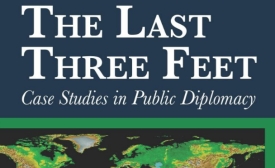public diplomacy
What: Israel Investment, Innovation and Trade Forum: Invest. Innovate. Israel.The conference will bring together key officials from the Israeli Ministries of Finance, Public Diplomacy, Office of the Prime Minister, as well as leading Israeli and U.S. business executives.
When the activists from Hong Kong, Macau and mainland China landed on the Diaoyu Islands recently, TV cameras shot bird's-eye views from helicopters. Two journalists from Phoenix TV were among those arrested and later released by Japanese police, all in front of the cameras.
The 1915 mass killings and deportations of Armenians in Ottoman Turkey are widely recognized as a genocide in Israel, an Israeli cabinet minister said after visiting the Armenian Genocide memorial here on Friday, August 24.

The USC Center on Public Diplomacy, in partnership with the USC Annenberg Center on Communication Leadership & Policy and the Public Diplomacy Council, was pleased to present a discussion of "
Rendered razor sharp against a blurred background, the small flowers of late summer burst with reality. These are discrete examples of meadow flowers that our eyes usually gather in flattened focus massively and whole.

Germany and China have been cultivating a brisk exchange, and since last year, have held joint government consultations. The current meeting takes place in the midst of major personnel changes in Beijing.
Strategic mutual trust and national feelings between China and Japan have been strained, and think tanks from both nations on Wednesday called for a crisis management mechanism to cool down the heated bilateral spats.
Marketing Sri Lanka's image abroad using the basics of public affairs, public diplomacy and strategic communication, as Sri Lankan watchers have observed, seems to be a dueling task for Sri Lankan authorities.







